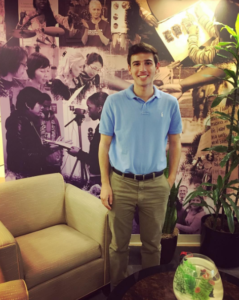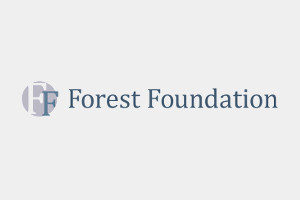Adolescent Consultation Services is a really interesting fit for me this summer because it both combines my interests in working with a passionate and empowering nonprofit and a real clinical environment. ACS provides mental health evaluations to adolescents involved in the juvenile court system, and then supports the family and youth through treatment and educational advocacy sessions after the initial evaluation. These evaluations are critical documents, because they are used to help the courts decide the fate and treatment plans of these youth, who oftentimes have additional mental health issues that need addressing. While I do not get to work with the individual clients for obvious liability concerns (I am neither a licensed social worker nor a psychologist yet), I am learning a lot! A component to my work at ACS is conducting interviews with the clinicians to gather information for the development office to be used on social media and other various informational reports. But as an added bonus, through these interviews I have been able to hear dozens of incredibly impactful stories and hear about the many different career paths each clinician has taken.
My work has consisted of writing client stories from the original evaluations, improving and editing the website and social media platforms, and assisting the development director in various administrative tasks. Because the work that goes on here at ACS is so closely tied to the legal system, I have also been able to sit in on a couple court cases and observe the dynamics of different cases. This has given me a better understanding of the entire process of forensic psychology, even though I am not directly working with the clients. ACS does an excellent job breaking down the confusing legal system for both youth and their families, through giving them the time and space they deserve. In my interviews with clinicians, a common trend I have heard is that these teens often have never had anyone sit down and consider their charges or mental health concerns in the context of their entire history. Oftentimes trauma and mental health illnesses follow families, and it is important to consider this with youth involved in the juvenile court system.
One of the clinicians in an interview I conducted said to me “it is almost badluck of the draw who ends up in the juvenile court system,” and this has really resonated with me. Many of the kids who are involved with the courts have had serious trauma in their life, and as a result face real mental health problems. But their stories are often no different than many of the kids who do not ultimately get “caught up” with the court. Unfortunately, many youth are raised in homes with histories of trauma and abuse, and the effects of these “adverse childhood experiences” can be really serious. Such “ACEs” can include emotional or physical abuse, neglect, or even family divorce, and when combined can truly limit a child’s development. ACS works with the court involved population, but this clinician’s comment reminded me how prevalent these issues are in the larger population and how we need to be talking about them more. Ideally, the work that ACS does could someday be extended even beyond the court-involved population because there are so many adolescents who are not getting the necessary mental health treatment they require. But until then, I am impressed by the work that ACS is doing and I’m happy to be working with them this summer!






